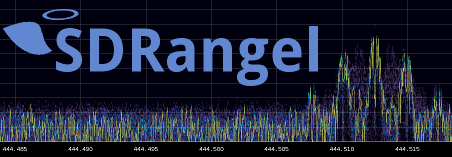 |
SDRAngel
4.11.5
Developer docs for <a href="https://github.com/f4exb/sdrangel">SDRangel<\a>, an Open Source Qt5 / OpenGL 3.0+ SDR and signal analyzer frontend to various hardware.
|
 |
SDRAngel
4.11.5
Developer docs for <a href="https://github.com/f4exb/sdrangel">SDRangel<\a>, an Open Source Qt5 / OpenGL 3.0+ SDR and signal analyzer frontend to various hardware.
|
#include <rs.h>
 Collaboration diagram for leansdr::rs_engine:
Collaboration diagram for leansdr::rs_engine:Public Member Functions | |
| rs_engine () | |
| bool | syndromes (const u8 *poly, u8 *synd) |
| u8 | eval_poly_rev (const u8 *poly, int n, u8 x) |
| u8 | eval_poly (const u8 *poly, int deg, u8 x) |
| void | encode (u8 msg[204]) |
| bool | correct (u8 synd[16], u8 pout[188], u8 pin[204]=NULL, int *bits_corrected=NULL) |
Public Attributes | |
| gf2x_p< unsigned char, unsigned short, 0x11d, 8, 2 > | gf |
| u8 | G [17] |
|
inline |
Definition at line 105 of file rs.h.
References leansdr::gf2x_p< Te, Tp, P, N, ALPHA >::exp(), i, leansdr::gf2x_p< Te, Tp, P, N, ALPHA >::mul(), and leansdr::gf2x_p< Te, Tp, P, N, ALPHA >::sub().
 Here is the call graph for this function:
Here is the call graph for this function:
|
inline |
Definition at line 201 of file rs.h.
References leansdr::gf2x_p< Te, Tp, P, N, ALPHA >::div(), leansdr::gf2x_p< Te, Tp, P, N, ALPHA >::exp(), leansdr::hamming_weight(), i, leansdr::gf2x_p< Te, Tp, P, N, ALPHA >::inv(), and leansdr::gf2x_p< Te, Tp, P, N, ALPHA >::mul().
Referenced by leansdr::rs_decoder< leansdr::u8, 0 >::run().
 Here is the call graph for this function:
Here is the call graph for this function: Here is the caller graph for this function:
Here is the caller graph for this function:
|
inline |
Definition at line 164 of file rs.h.
References leansdr::gf2x_p< Te, Tp, P, N, ALPHA >::div(), i, leansdr::gf2x_p< Te, Tp, P, N, ALPHA >::mul(), and leansdr::gf2x_p< Te, Tp, P, N, ALPHA >::sub().
 Here is the call graph for this function:
Here is the call graph for this function:Definition at line 153 of file rs.h.
References leansdr::gf2x_p< Te, Tp, P, N, ALPHA >::add(), and leansdr::gf2x_p< Te, Tp, P, N, ALPHA >::mul().
 Here is the call graph for this function:
Here is the call graph for this function:Definition at line 143 of file rs.h.
References leansdr::gf2x_p< Te, Tp, P, N, ALPHA >::add(), i, and leansdr::gf2x_p< Te, Tp, P, N, ALPHA >::mul().
 Here is the call graph for this function:
Here is the call graph for this function:Definition at line 132 of file rs.h.
References leansdr::gf2x_p< Te, Tp, P, N, ALPHA >::exp(), and i.
Referenced by leansdr::rs_decoder< leansdr::u8, 0 >::run().
 Here is the call graph for this function:
Here is the call graph for this function: Here is the caller graph for this function:
Here is the caller graph for this function:| gf2x_p<unsigned char, unsigned short, 0x11d, 8, 2> leansdr::rs_engine::gf |
 1.8.13
1.8.13